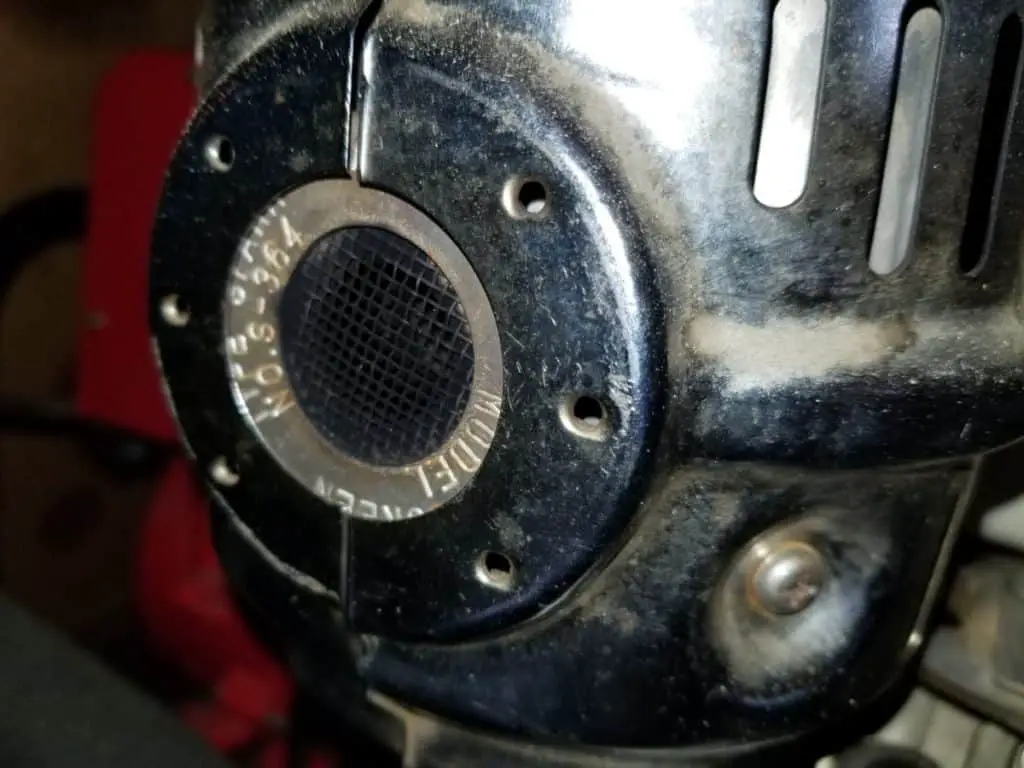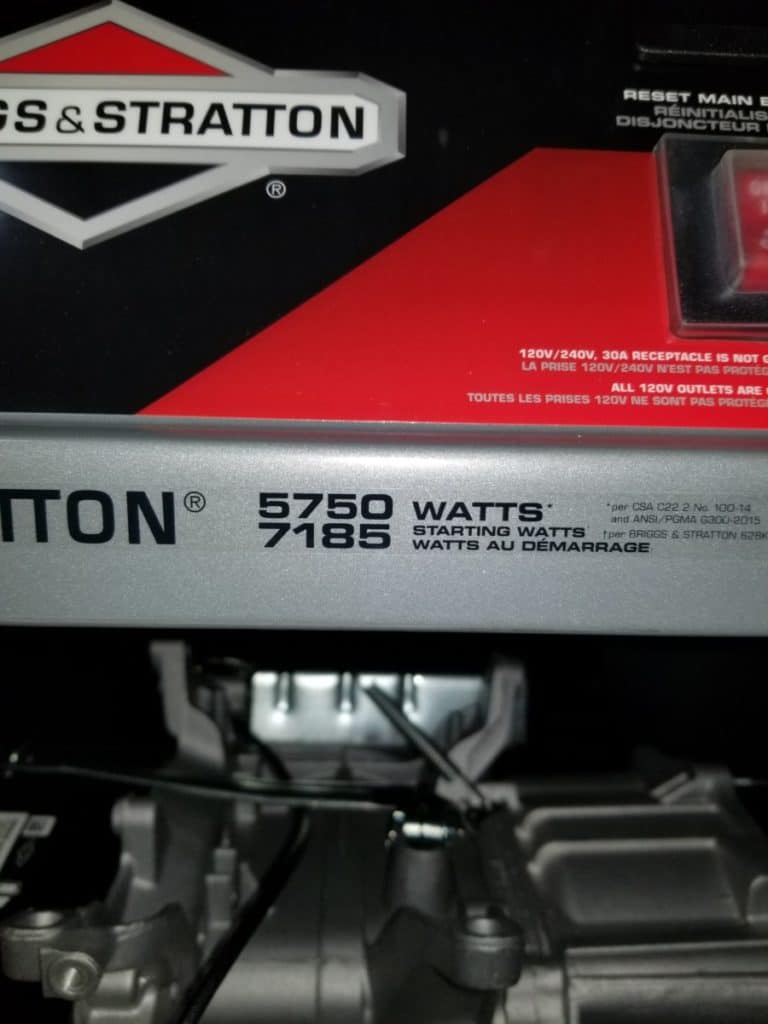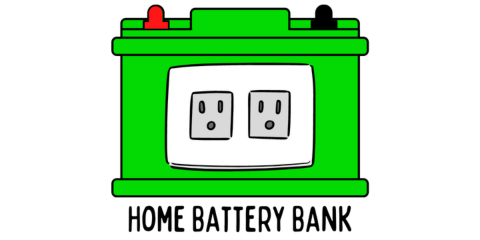Before I purchased my first generator I was really curious and concerned with just how loud a portable generator would be. It’s a valid point if concern since we have to share our neighborhoods and campgrounds with others.
How loud is a portable generator?
The loudness of conventional generators will generally run between 65-80dB depending on the size and brand. Quality brands will run quietest for their size. Inverter generators are the quietest option and run in the 48-61dB range.
How Loud are Portable Generators in Decibels (dB)
| Portable Generator Type | Generator Size in Kilowatts (kW) | Decibels (dB) |
|---|---|---|
| Conventional | 2,000-4,500 | 65-69 |
| Conventional | 5,000-7,500 | 67-74 |
| Conventional | 7,500-12,000 | 74-90 |
| Inverter | All | 48-61 |
Below I’ll cover the industry standards for measuring the noise, a brief explanation of decibels, the ratings of different sizes of generators, what you can do to make your generator quieter, and what to do if you aren’t able to run your generator at night.
Industry Standard for Measuring Generator Noise
Surprisingly, there is none. That doesn’t stop most companies from throwing out their own rating though. Thankfully, after researching dozens of companies and all of their various models, the unofficial standard is consistent across the board.
The current unofficial industry standard for measuring generator noise is to calculate the sound in decibels (dB) from a distance of 23 feet (7m). No industry prerequisite exists for the test environment regarding the engine load, the muffler direction, or walls. These are all likely optimized for marketing purposes.

Some brands, like the popular Generac company, do not claim a decibel rating for any of their generators and refuse to give one when asked due to there not being an industry standard that everyone follows. These companies generally will say that their generators will be relative to the noise level of other equivalent generators within the industry.
So, it may be nice to see a decibel rating listed when you go to purchase one but I wouldn’t put too much stock into it if the numbers are close.
What are Decibels (dB)?
Decibels are a unit of measurement for the how loud a sound is when perceived by the human ear. The scale is not linear but logarithmic and relative. Put simply, for every increase in 10dB, there is a doubling of perceived loudness by the human ear. A minimum change of 6db is usually required to be perceived.
So, what does that mean for those of us in the market for a generator and worried about the sound? It means that you’ll likely not be able to perceive a difference between that nice Honda EU2000i with a decibel rating of 48-57, and the Champion 2000 with a decibel rating of 53. However, your wallet will certainly perceive a difference.
If we compare those same generators to a DuroMax XP12000E generator with a decibel rating of 72, the difference in sound will absolutely be noticeable and that 20-decibel difference will mean that the DuroMax will be perceived as being 4 times louder by your (and your neighbor’s) ears.
How loud are Inverter Generators?
These generators are the Charlie Chaplin of the generator world if you are looking for quiet. Yes, they make noise, but it is barely noticeable beyond a short distance.
A typical inverter generator will have a decibel rating of around 48-61. Practically speaking, this means that they would be about as loud as a conversation at a dinner table. Due to their quiet nature when compared to other portable generators, the inverter generators are ideal for camping or when silence is needed.
The drawback of inverter generators is that they have a low kilowatt output (relatively speaking). You are certainly not going to power your central air, well water, or multiple large appliances with one.
When camping, it will meet most of your needs but will likely be undersized for your air conditioning in the RV. If it does manage to get it going, you likely will be maxing out the ability of the generator and certainly won’t be powering anything else of any significance with it.
How Loud are Small Generators?
You’ll typically find smaller generators with a decibel measurement of about 65 to 69 with a few outliers. These generators would be in the 2000kw – 4500kw range and would be perceived by the human ear to be about as loud as a hair dryer or standard vacuum cleaner.
Generators of this size are going to be ideal for small to medium outputs and will handle most things that you will need in a power outage or when camping.
Due to their limited capacity, they are not the ideal choice (and likely will not work) for central air but will likely run a single window unit just fine. They may or may not work for your well pump if you were looking to get water from under your property. You would have to check the horsepower of your pump and research your particular situation.
Here is a link to another website which is a great resource for gauging how many watts you need to power the various things that you will encounter around the house: https://www.generatorjoe.net/html/wattageguide.html.
How Loud is a Medium-Sized Generator?
Medium sized generators with a kilowatt output of 5,000 to 7,500 will generally have a decibel reading in the range of 67 to 74 with some outliers. This would be perceived to be as loud as a noisy dishwasher.
Generators of this size are ideal for almost any normal household task or operation and are usually within a reasonable price point. They may still, however, fall short of your central air needs within the home.

How Loud is a Large Generator?
Large generators that have an output of 7,500kw to 12,000kw+ will generally have a decibel reading between 74 to 80+. The human ear would perceive this to be as loud as a garbage disposal or blender (at the higher range).
At least with the increased sound and price you will receive increased power and a generator of this size should be able to meet any individual task you give it around the house and many combinations of tasks, but not necessarily everything all at the same time.
What is the Quietest Generator?
When considering quality as well, the quietest generators on the market are the Honda EU series generators and the less-expensive Champion inverter generators. On paper, a Honda is quieter but the difference between it and the equal-sized Champion inverter generator will likely not be a perceived by the human ear.
You can check out the price difference for yourself with these links to Amazon. Take note of the reviews for both which are very high. Many of the praises to the Champion brand come from Honda owners who took a gamble on the less expensive option and fell in love with it. They both make smaller models than the ones linked-to below.
Champion 3100-Watt RV Ready Portable Inverter Generator
How to Make a Generator Quieter?
To make a generator quieter to the ear, you can aim the muffler away from your house (and your neighbor’s if possible), buy or construct a shed or protective cover for the unit to contain the sound, or simply run it on a lower draw to reduce the amount of electricity being demanded from it and not stress the motor.
How to Get Electricity if I am not Allowed to Run my Generator at Night?
Many campgrounds will not allow generators at night past a certain hour, and some won’t even allow them at all. Running a generator at night around your house during a power outage leaves your generator vulnerable to theft.
If you’re not allowed to run your generator at night, a valid option may be a DIY battery bank. When paired with a DC to AC power inverter, a couple 12-volt deep cycle marine batteries hooked in parallel, or a couple 6-volt golf cart batteries hooked in series will give you all of the lighting you’ll need and device charging capabilities to last you through several nights.
I have a full tutorial and video that details every step of the battery bank process at this link.
A battery bank setup would be capable of running fans for cooling and CPAP machines as well but will drain at a faster rate as you increase the watts needed.
If you absolutely needed a charge and couldn’t find an outlet to plug a charger into, you could hook your battery bank up to your car battery (while running) to get a crude recharge.
